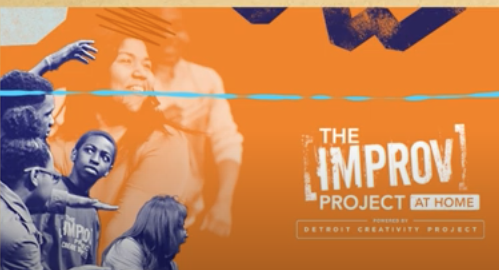Source: Michigan News

More Info
Study: Reducing social anxiety and intolerance of uncertainty in adolescents with improvisational theater
People with a wide range of emotional disorders, including anxiety disorder and depression, react negatively to uncertainty. When worrying about future events, not knowing can feel very uncomfortable, leading to increased avoidance and inflexibility.
New research from the University of Michigan and Northern Michigan University tested whether addressing discomfort with uncertainty through improvisational training is related to reduced social anxiety.
Previous studies show an intensive clinical intervention—18 weekly, 1-hour private sessions of cognitive behavior therapy—works to reduce intolerance of uncertainty. But most people, including teens, don’t have access to expensive therapies, and want to avoid the stigma of clinical disorders, says Peter Felsman, the study’s lead author and U-M doctoral graduate.
Felsman and colleagues investigated improvisational theater training to determine whether learning to “sit in the discomfort” of uncertainty might help. For example, in an improv exercise, two students improvise a story together, with each, in turn, introducing novel ideas their partner can’t predict. They must accept the new idea and build upon it to co-create the story.
“Improv experiences require facing the unknown, with each successive moment allowing infinite possibilities,” said study co-author Colleen Seifert, U-M psychology professor.
The new study by the research team—including Brandy Sinco, senior statistician at Michigan Medicine, and Joseph Himle, U-M professor of social work and psychiatry—links tolerating uncertainty to their previous findings about reductions in social anxiety through improv. The study, published in “The Art of Psychotherapy,” included 350 predominantly Hispanic and Black 8th-12th graders from low-income neighborhoods in the Detroit Public School System.
Within regular classes, 10 weekly improvisational theater sessions are offered free of charge by the Detroit Creativity Project. Similar “improv at home” lessons are offered on their public website. The researchers surveyed the students before and after training to measure their feelings of social anxiety and intolerance of uncertainty.
The study’s results show that improv training is connected to reduced social anxiety through better tolerance of uncertainty.
“Becoming more comfortable with uncertainty may have other important psychological benefits, extending the value of improv training,” said Felsman, now an assistant professor at Northern Michigan University.
The importance of the study is its identification of this low-cost, low-stigma classroom intervention tied to improved psychological health in teens.
“More than simply adding fun, improv training may indirectly improve psychological flexibility,” Seifert said.

